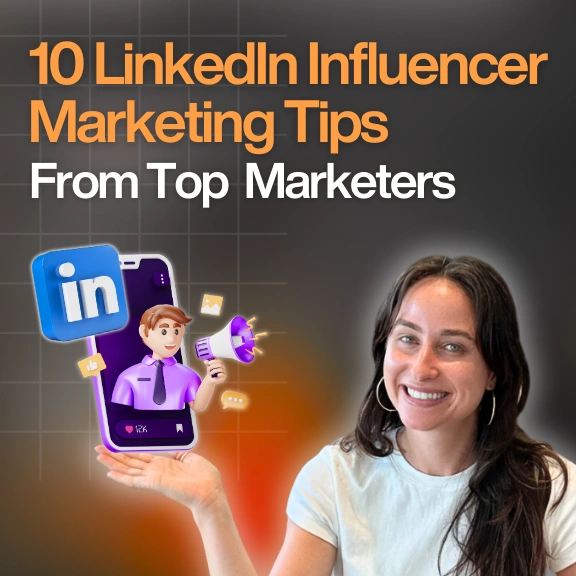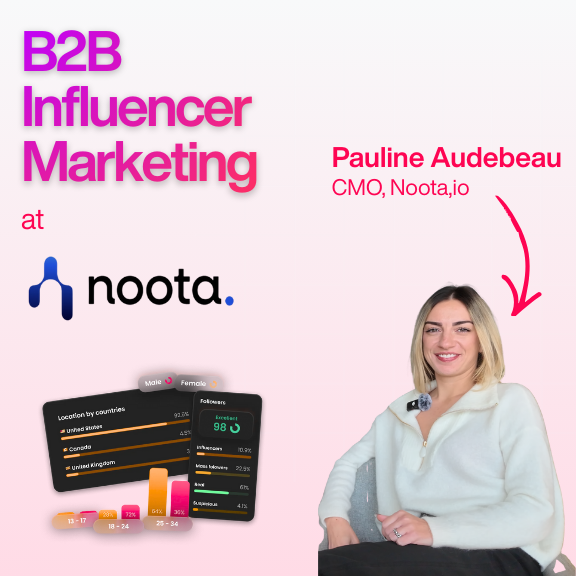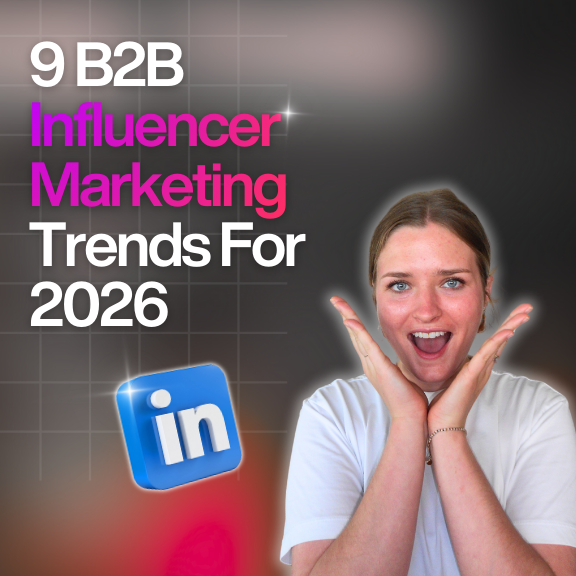Blog & Articles
Your ultimate ressource for the creator economy
Methodology & Rankings
About Favikon, rankings, tools & much more.
Insights
The recipe behind Favikon's viral & coveted rankings.
Free tools to power your influencer marketing workflows.
See Favikon users' success stories.
Get access to all Favikon rankings.
Become a Partner
Become an Affiliate
About the team behind Favikon
The place to talk creator economy, together


Featured Rankings

Here is the Top 50 Rising Video Creators on LinkedIn. Video is quickly becoming the platform’s most powerful format, with creators gaining more reach and engagement than ever. As Gen Z grows its presence and tools like BrandLink and Thought Leader Ads support content creation, LinkedIn is doubling down on video. This ranking, made in partnership with OpusClip, celebrates the creators leading this shift and aims to inspire anyone ready to start sharing through video.

Here is the Top 50 Rising Video Creators on LinkedIn. Video is quickly becoming the platform’s most powerful format, with creators gaining more reach and engagement than ever. As Gen Z grows its presence and tools like BrandLink and Thought Leader Ads support content creation, LinkedIn is doubling down on video. This ranking, made in partnership with OpusClip, celebrates the creators leading this shift and aims to inspire anyone ready to start sharing through video.


Sarthak Ahuja is a marketing enthusiast currently contributing to digital marketing strategies at Favikon. An alumnus of ESCP Paris with over 2 years of professional experience, he has held multiple marketing roles across industries. Sarthak's work has been published in journals and websites. He loves to read and write about topics concerning sustainability, business, and marketing. You can find him on LinkedIn and Instagram.
Check Brand DealsChoosing between influencer marketing agencies and platforms can significantly impact your campaign’s success. As brands increasingly harness social media influencers to engage audiences, understanding these options is crucial.
In this blog post, we’ll dive into the advantages and differences between influencer marketing agencies and platforms. Whether you’re seeking personalized strategies from experts or the autonomy of tech-driven tools, this guide will help you navigate the evolving influencer marketing landscape in today’s digital age. Let’s explore which approach best aligns with your brand’s goals and needs.
1. What is an Influencer Marketing Agency?
An Influencer Marketing Agency is a specialized firm that connects brands with social media influencers to promote products or services. These agencies handle everything from identifying the right influencers, negotiating contracts, creating campaign strategies, to managing relationships and analyzing campaign performance. Essentially, they offer a full-service approach, leveraging their expertise and networks to ensure that brands get the best possible return on their influencer marketing investments.
2. What is an Influencer Marketing Platform?
An Influencer Marketing Platform is a technology-driven tool that provides brands with the resources to manage influencer marketing campaigns in-house. These platforms typically offer features such as influencer discovery, campaign management, performance tracking, and analytics. They enable brands to search for influencers based on specific criteria, create and manage campaigns, communicate with influencers directly, and measure the success of their efforts. Think of it as a DIY approach with the support of robust software.
3. Key Differences Between Influencer Marketing Agencies & Influencer Marketing Platforms
Full-Service vs. Self-Service:
- Agencies provide a full-service experience, handling every aspect of the influencer marketing process.
- Platforms offer a self-service model where brands use the technology to manage campaigns themselves.
Personalized Strategy vs. Automated Solutions:
- Agencies often provide personalized strategies, with bespoke campaigns tailored to the brand's needs and objectives.
- Platforms rely on automated tools and data-driven insights, allowing brands to create and optimize campaigns using the available features.
Human Touch vs. Technological Efficiency:
- Agencies offer the human touch, with dedicated account managers and industry experts guiding the process.
- Platforms emphasize technological efficiency, enabling brands to leverage AI and machine learning to enhance campaign performance.
Cost Structure:
- Agencies typically charge higher fees for their comprehensive services.
- Platforms can be more cost-effective, usually offering subscription-based pricing or pay-per-use models.

4. Which One Should I Use?
Choosing between an influencer marketing agency and a platform depends on your specific needs, budget, and resources:
- Use an Influencer Marketing Agency if:
- You prefer a hands-off approach and want experts to handle everything.
- Your budget allows for higher fees in exchange for personalized service.
- You need tailored strategies and high-touch campaign management.
- You’re new to influencer marketing and require guidance and expertise.
- Use an Influencer Marketing Platform if:
- You have the in-house capability to manage campaigns.
- You seek a more cost-effective solution.
- You prefer the flexibility and control of managing campaigns yourself.
- You are comfortable using technology and data to drive your marketing efforts.
5. Why Influencer Marketing Platforms are More Effective in Today's AI Age
In the age of AI, influencer marketing platforms offer several advantages that make them highly effective:
Advanced Analytics and Insights:AI-powered platforms provide deep insights into influencer performance, audience demographics, and campaign ROI. This data-driven approach allows brands to make informed decisions and optimize their strategies in real-time.
Scalability:Platforms enable brands to scale their influencer marketing efforts efficiently. AI can sift through vast amounts of data to identify the best influencers quickly, making it easier to manage large campaigns.
Automation:Many platforms offer automated features such as influencer outreach, contract management, and content approval workflows. This reduces the time and effort required to manage campaigns, allowing marketers to focus on strategy and creative aspects.
Precision Targeting:AI can analyze vast datasets to identify influencers whose audiences align perfectly with the brand’s target market. This precision targeting ensures that campaigns reach the most relevant and engaged audiences.
Cost-Effectiveness:By leveraging AI and machine learning, platforms can offer powerful tools at a fraction of the cost of hiring a full-service agency. This makes influencer marketing accessible to smaller brands and startups.
In conclusion, while both influencer marketing agencies and platforms have their place, the technological advancements in AI make platforms an increasingly attractive option for brands looking to leverage the power of influencer marketing efficiently and effectively.
Related Articles
See all the articlesResources











.png)










